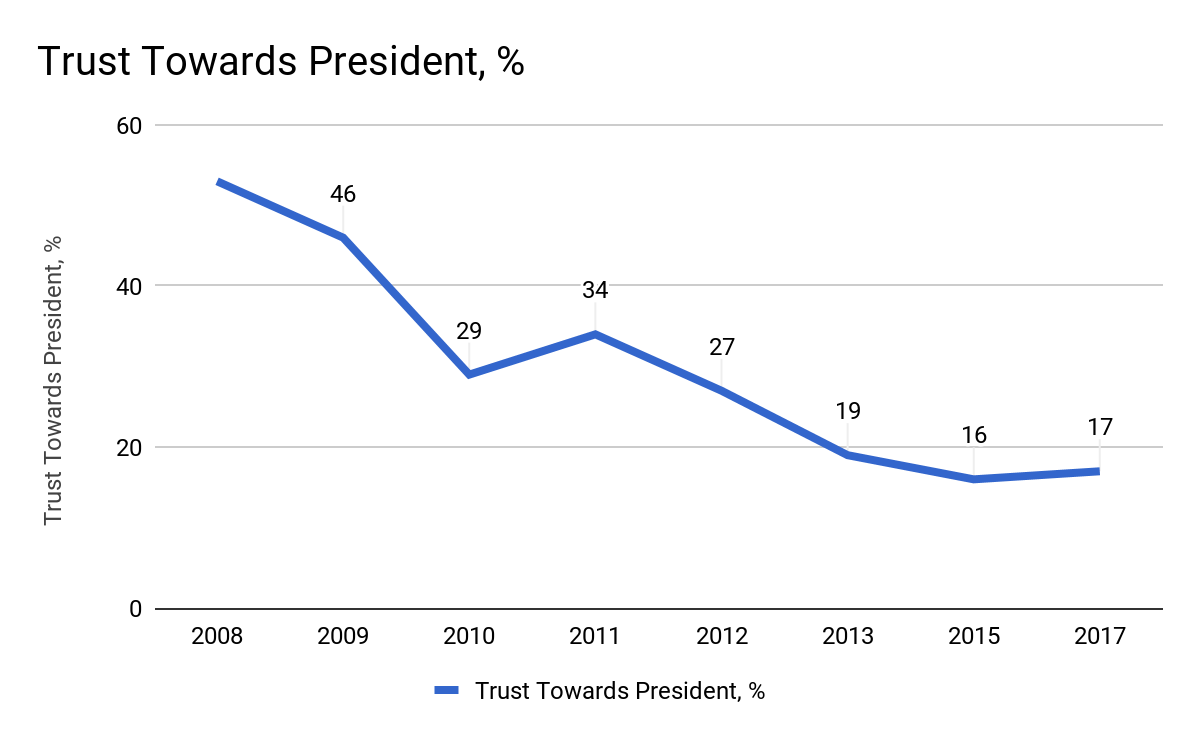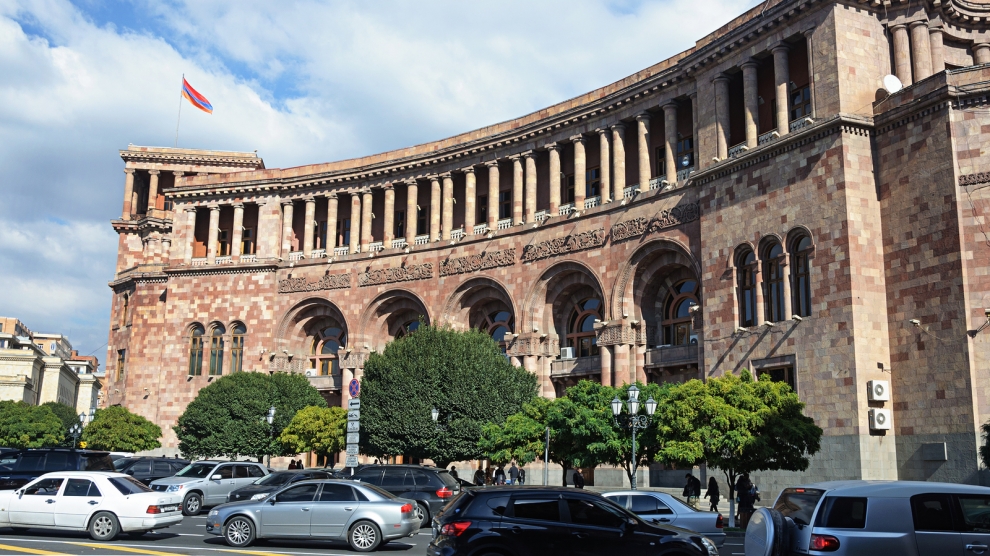On Tuesday, April 17, a new Armenian Prime Minister was elected. Yet the word “new” is hardly applicable to Serzh Sargsyan, who ruled the country for ten years in his capacity as president. Is this a replication of the Putin-Medvedev-Putin scheme? Not quite. The story is more intricate.
Until very recently, Armenia had a semi-presidential (on paper, super presidential in reality) form of governance. Following 2008 elections marred by irregularities, post-electoral unrest and violence (claiming the lives of ten people), Serzh Sargsyan was elected as the third president of independent Armenia. He and his Republican Party have been in power since then.
In 2014 the government proposed a change from a presidential to a parliamentary system. The opposition criticised the proposal. This was not a genuine attempt to improve the system or strengthen democracy, they claimed. Instead, this was just a move by Serzh Sargsyan to cement his hold on power. The constitution barred him from running for office for the third time. Changing that would look too much like our authoritarian neighbours, and he did not have a trusted ‘Medvedev’ to play the Russian-style theatre. Instead, he was playing a more fine-tuned game: changing the system would allow him to comfortably remain in power as a prime minister without any term limitations.
To counter this criticism, President Sargsyan made a promise. In a well-documented televised address, he said that if Armenia makes a transition to the parliamentary system, he will not aspire to become the prime minister. Moreover, he added that he believes that no person should aspire to lead the country for more than two terms. It was as clear a promise as could be. A year later the constitutional change was approved in a referendum. Armenia started its transition to the new system.
Up until recently, it looked like the president intended to keep his word. After appointing a new energetic and rather popular prime minister, Karen Karapetyan, he withdrew into shadows, letting younger members of the cabinet take centre stage during the parliamentary election campaign of 2017. The Republican Party secured a majority of seats in elections that were not unproblematic but were an improvement compared to the past. For those who wanted to believe in a peaceful transition of power, the possibility of the Republican Party to renew itself, and Armenian politics moving beyond personalities, things started to look hopeful. Call us naive…
Days after President Serzh Sargsyan’s final term in power came to an end he reneged on his promise. With a comfortable majority in parliament, his Republican Party nominated him as the prime minister and voted him into office. Two explanations were being floated shortly before the final decision: that the “situation has changed” and that “there is nobody else.” Both are pathetic. As someone who has continuously lived in the country, I fail to see what exactly has changed since 2014, except slight improvements which should hardly be a reason to hold on to power. As for the second explanation, it only emphasises the weakness and short-sightedness of Mr Sargsyan and the Republican Party. If someone is serious about resigning from power (and I do believe he was serious in 2014), one should work on preparing a successor. So we have not moved beyond the personification of politics. An appalling lack of progress in establishing basic political institutions, in my opinion.
How will that impact the popularity of Mr Sargsyan? Judging by public opinion data, things can hardly be worse. According to Caucasus Barometer, trust towards the President has steadily declined during his term in office and currently stands at 17 per cent. Looking at the graph below, one cannot help but wonder what will be the price of clinging to power despite being so unpopular.

Lies and broken promises seemed to have become a pervasive feature of politics. Global leaders, democrats and dictators alike, lie to us daily. We have become so accustomed we are barely surprised when the next ridiculous lie hits the headlines. Politics is dirty, what else is new? We have almost given up on the idea of holding our politicians to their word. Almost, but not quite.
There are at least 25,000 people in Armenia who are outraged by the broken promise and have taken to the streets in a wave of protests and civil disobedience. Many more are tacitly supportive. In our post-truth era, I find the public outcry over the broken promise refreshing. It seems honesty and honour are still important in Armenia, at least to a segment of the younger generation at the forefront of the protest. Even if the protests diminish, the dissatisfaction will continue to smoulder. Can a distrusted oath breaker really govern the country?
—
The views expressed in this opinion editorial are the author’s own and do not necessarily reflect Emerging Europe’s editorial policy.

